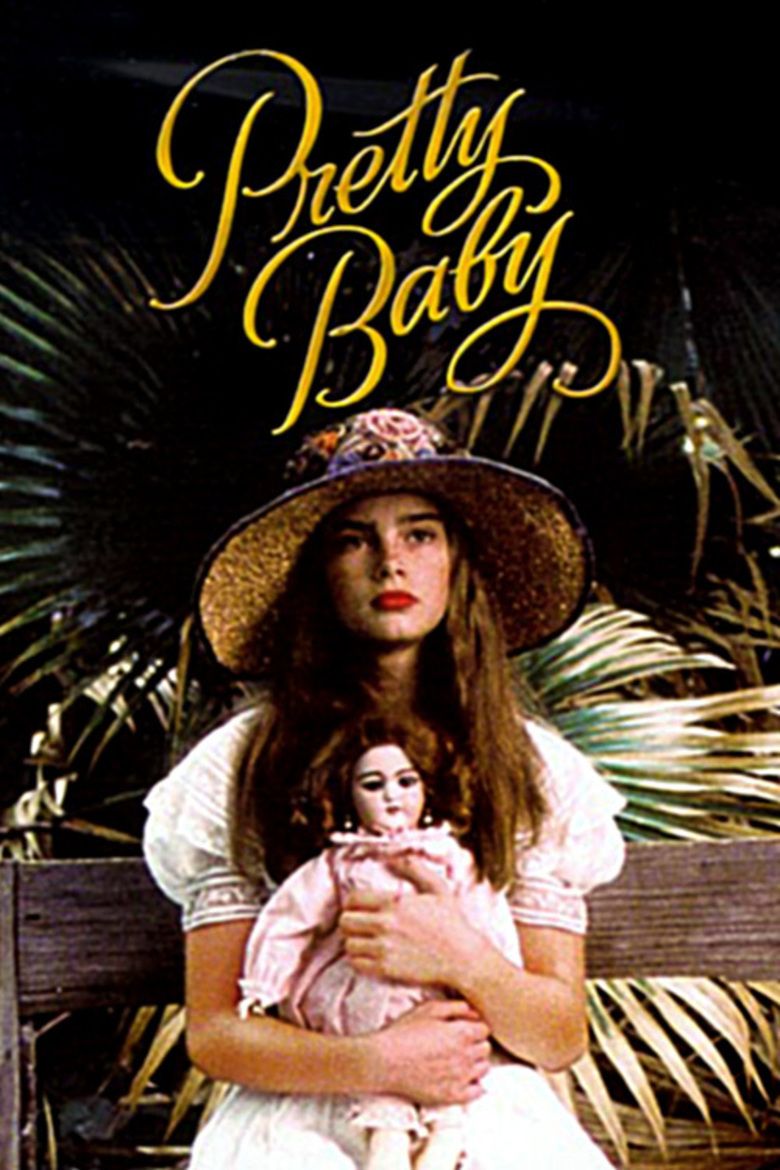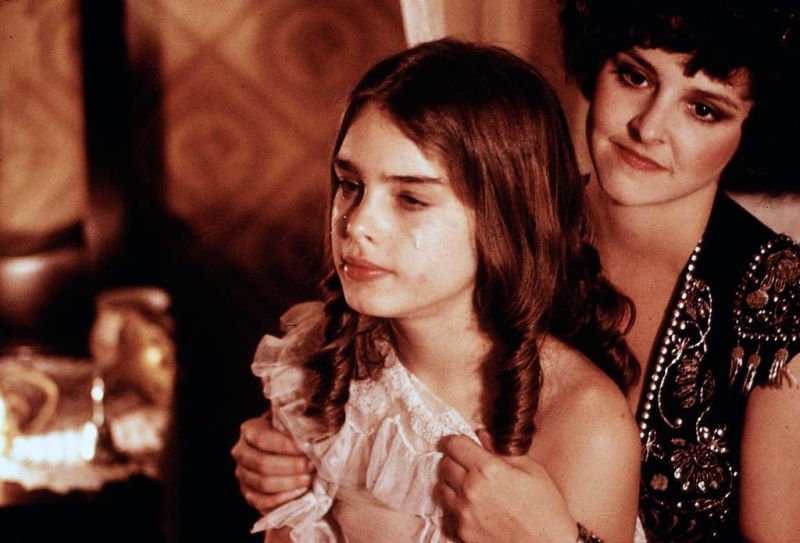Pretty Baby: The Timeless Allure Of Childhood Innocence
Pretty Baby is a term that evokes images of childhood innocence, beauty, and the tender moments that define our early years. In a world that often rushes past the fleeting nature of youth, the concept of a "pretty baby" serves as a reminder of the purity and joy that children bring into our lives. This article will explore the cultural significance of the term, its impact on society, and how it has evolved over time. We will delve into the history of the phrase, its representation in media, and why the notion of "pretty babies" continues to resonate today.
The idea of a "pretty baby" transcends mere physical appearance; it encapsulates the essence of childhood—playfulness, curiosity, and wonder. From classic paintings to modern photography, the beauty of children has been celebrated throughout history. This exploration will not only highlight the aesthetic aspects but will also touch upon the emotional connections and societal implications tied to the perception of beauty in children.
Furthermore, we will examine the various facets of what it means to be a "pretty baby" in different cultures and how perceptions of beauty can vary significantly across societies. With the rise of social media, the representation of children has also changed dramatically, leading to new conversations about privacy, safety, and the commercialization of childhood. Join us as we uncover the layers behind the term "pretty baby" and its ongoing relevance in our lives.
Table of Contents
- The Historical Context of "Pretty Baby"
- Cultural Significance of Childhood Beauty
- Media Representation of "Pretty Babies"
- Psychological Impact of Beauty Standards on Children
- Global Perspectives on Childhood Beauty
- The Role of Social Media in Shaping Perceptions
- Ethical Considerations in Portraying Children
- Conclusion: Embracing Childhood Innocence
The Historical Context of "Pretty Baby"
The phrase "pretty baby" has deep roots in art and literature, often depicting the idealized version of childhood. Artists like William-Adolphe Bouguereau have immortalized the beauty of children in their works, emphasizing innocence and purity. These representations have influenced societal standards of beauty, creating a lasting impact on how we view children today.
The Evolution of Beauty Standards
Over the centuries, beauty standards have shifted dramatically. In earlier times, chubby infants were seen as healthy and desirable. However, with the advent of the media, these standards have become more rigid, often idealizing a specific type of beauty that not all children possess. This evolution raises questions about how we define beauty and its implications for children growing up in today's society.
Cultural Significance of Childhood Beauty
In many cultures, the concept of a "pretty baby" goes beyond aesthetics; it symbolizes hope and the future. Children are often viewed as embodiments of potential and innocence. This section will explore how different cultures celebrate childhood through festivals, art, and traditions, showcasing the universal appreciation for beauty in youth.
Celebrations and Festivals
- In Japan, the Shichi-Go-San festival celebrates the growth of children aged three, five, and seven, emphasizing their beauty and health.
- The Hindu festival of Raksha Bandhan highlights the bond between brothers and sisters, often showcasing the beauty and innocence of young children.
- In Western cultures, birthdays and milestone celebrations often feature children dressed in beautiful attire, reinforcing the significance of childhood beauty.
Media Representation of "Pretty Babies"
The media plays a crucial role in shaping perceptions of beauty. From advertisements to movies, the portrayal of children often aligns with societal ideals of attractiveness. This section will analyze how the media's representation of "pretty babies" influences public perceptions and expectations.
Impact of Advertising
Advertisements frequently utilize images of beautiful children to evoke emotions and appeal to consumers. This practice raises ethical questions about the impact of such portrayals on children's self-esteem and societal expectations. The following points highlight key issues:
- Commercialization of childhood can lead to unrealistic beauty standards.
- Children may feel pressured to conform to societal ideals of beauty.
- Parental involvement in media representation can help mitigate negative impacts.
Psychological Impact of Beauty Standards on Children
The psychological effects of societal beauty standards on children cannot be underestimated. Children exposed to idealized images of beauty may struggle with self-image and self-worth. This section will delve into the psychological implications of being labeled as a "pretty baby."
Self-Esteem and Body Image Issues
Research has shown that children who are constantly compared to idealized images may experience lower self-esteem and body image issues. The following factors contribute to this phenomenon:
- Increased exposure to social media and beauty standards.
- Pressure from peers and family to meet certain standards of attractiveness.
- The role of parenting in shaping children's perceptions of beauty.
Global Perspectives on Childhood Beauty
Beauty standards vary greatly across the globe. Different cultures have unique perspectives on what constitutes a "pretty baby." This section will explore how cultural differences influence perceptions of beauty in childhood.
Beauty Ideals Around the World
- In some African cultures, fuller figures are celebrated, contrasting with Western ideals of thinness.
- In Asian cultures, fair skin is often associated with beauty, leading to a range of beauty products aimed at achieving this standard.
- Latin American cultures may emphasize vibrant clothing and expressive personalities, celebrating beauty in diversity.
The Role of Social Media in Shaping Perceptions
Social media has transformed how we view beauty. Platforms like Instagram and TikTok showcase "pretty babies," often leading to heightened expectations and comparisons. This section will analyze the impact of social media on the perception of childhood beauty.
Positive and Negative Effects of Social Media
- Social media can provide a platform for celebrating diverse beauty standards.
- However, it can also perpetuate unrealistic beauty ideals and lead to comparison culture.
- Parents can play an active role in guiding their children’s social media experiences to foster a healthy self-image.
Ethical Considerations in Portraying Children
The portrayal of children in media raises ethical concerns regarding consent, privacy, and exploitation. This section will discuss the responsibilities of parents, advertisers, and society in ensuring the ethical representation of "pretty babies."
Protecting Childhood Innocence
- Parents should be vigilant about the images they share of their children online.
- Advertisers must consider the impact of their campaigns on children's self-esteem and identity.
- Society should prioritize the protection of childhood innocence over commercial interests.
Conclusion: Embracing Childhood Innocence
In conclusion, the term "pretty baby" encapsulates a wide range of meanings and implications in our society. While it celebrates the beauty and innocence of childhood, it also raises important questions about societal standards and the impact of media representation on young minds. As we navigate these complexities, it is crucial to prioritize the well-being of children and embrace their unique beauty without imposing unrealistic standards. Let us cherish the joy and wonder that "pretty babies" bring into our lives and work towards creating a more inclusive and accepting world for all children.
We invite you to share your thoughts on this topic. Did you find this article helpful? Feel free to leave a comment below, share this article with friends, or explore more of our content on childhood and beauty.
Thank you for reading! We hope to see you back here soon for more insightful articles.
Understanding PTLO: A Comprehensive Guide
Mat Rife: The Rise Of A Stand-Up Comedy Sensation
Understanding Currency Exchange Rates: A Comprehensive Guide


